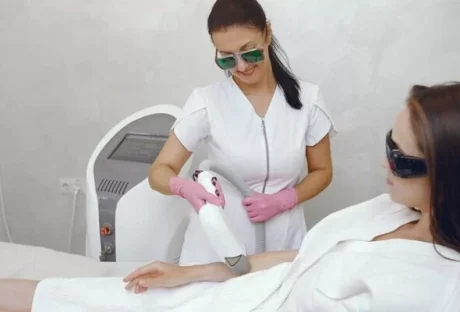Nowadays, with awareness and proper knowledge, people are getting more and more conscious about the products they use; hence it has led to a rise in demand for organic haircare products. With a focus on organic ingredients, organic haircare offers a greener and healthier alternative to conventional haircare products. However, as the market grows, it becomes essential for consumers to differentiate genuine organic shampoo and conditioner from those that merely claim to be so.
In this blog, we will dive into the world of certifications in organic haircare products, understanding their significance, and how they ensure transparency and quality.
What Are Certifications In Organic Haircare?
Certifications are endorsements from reputable organizations or governing bodies that validate the authenticity of organic claims made by haircare brands. They act as a reliable assurance for consumers, indicating that the products have undergone stringent evaluations and meet specific standards.
Why Do Certifications Matter?
Transparency and Trust: Certifications offer transparency about the sourcing, production, and ingredient quality of organic haircare products. Consumers can easily trust that the products they are using align with their ethical and environmental values.
Quality Assurance: Certifications ensure that organic haircare products meet certain standards in terms of ingredients, manufacturing processes, and sustainability practices. This assurance promotes higher-quality products for consumers.
Avoiding Greenwashing: Greenwashing is a marketing practice where companies falsely claim to be organic or eco-friendly to attract environmentally conscious consumers. Certifications help distinguish genuine organic products from deceptive marketing tactics.
Common Certifications In Organic Shampoo And Conditioner:
USDA Organic: One of the most well-known organic certifications, the United States Department of Agriculture (USDA) Organic label verifies that the product contains at least 95% organic ingredients. The remaining 5% must be from an approved list and must not contain any synthetic chemicals.
ECOCERT: ECOCERT is a globally recognized certification that ensures the organic and natural integrity of products. They assess the product’s ingredients, manufacturing processes, and environmental impact.
Leaping Bunny: While not specifically for organic products, the Leaping Bunny certification is crucial for cruelty-free hair care. This certification confirms that the product and its ingredients were not tested on animals.
Tips For Choosing Organic Haircare Products:
Look for Recognizable Certifications: Prioritize products with well-known organic certifications like USDA Organic, ECOCERT, or COSMOS.
Read the Ingredient List: Check the ingredient list for natural and organic components, avoiding products with harmful chemicals like sulfates, parabens, and phthalates.
Research the Brand’s Values: Investigate the brand’s sustainability practices, ethical sourcing, and commitment to the environment.
Read Reviews: Look for consumer reviews and feedback on the product’s performance and authenticity.
Conclusion:
Certifications play a vital role in verifying the authenticity of organic haircare products, providing consumers with confidence in their purchases. When armed with knowledge about these certifications and label claims, consumers can make informed decisions, selecting high-quality, organic haircare products that align with their values and contribute to a greener, more sustainable future.
Read Also:
- Use Organic Products To Prevent Gray Hair
- Why Hairdressers Love Rose Gold Colour
- Who Are The Best Software Vendors Out There?
























